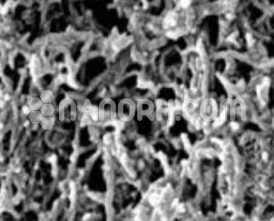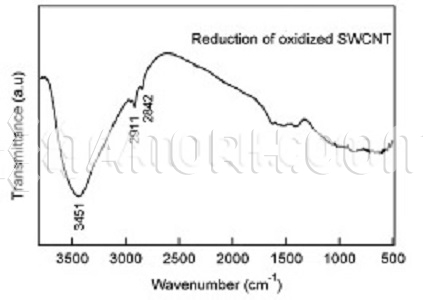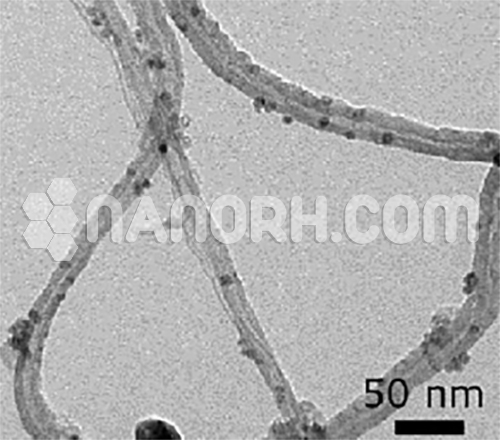| Alumina Carbon Nanotubes | |
| Product No | NRE-37001 |
| CAS No. | NA |
| Purity | 97% |
| Average Diameter | >55 nm |
| Average Length | 10-30umm (TEM) |
| Special Surface Area(SSA) | 60 m2/g (BET) |
| Tap Density | 0.12 g/cm3 |
| True Density | 2.1 g/cm3 |
| Electric Conductivity | > 100 S/cm |
Alumina Carbon Nanotubes
Alumina carbon nanotubes are composite materials that combine with, typically either. This combination leverages the unique properties of both components. The mechanical strength, electrical conductivity, and thermal properties of alongside the chemical stability, high hardness, and thermal resistance.
The integration of into matrices enhances the overall performance of the composite material.
Potential Applications:
Alumina carbon nanotubes (ACNTs) have a variety of potential applications across different fields due to their enhanced properties. Here are some key areas where ACNTs can be effectively utilized:
Advanced Ceramics: ACNTs can be incorporated into ceramic matrices to improve mechanical strength, toughness, and thermal resistance. This makes them suitable for aerospace components, cutting tools, and wear-resistant coatings.
Electronics: The unique electrical properties of ACNTs enable their use in electronic devices such as capacitors, sensors, and field-effect transistors. Their combination of conductivity and insulation can be harnessed in flexible electronics.
Thermal Management: ACNTs can enhance the thermal conductivity of materials, making them ideal for applications in heat sinks, thermal interface materials, and electronic packaging, where efficient heat dissipation is crucial.
Biomedical Applications: Due to their biocompatibility and ability to be functionalized, ACNTs can be used in drug delivery systems, scaffolds for tissue engineering, and biosensors for medical diagnostics.
Catalysis: ACNTs can serve as support materials in catalytic processes, providing a stable surface for reactions while facilitating electron transfer and enhancing catalytic activity.
Energy Storage: In batteries and supercapacitors, ACNTs can improve charge storage capacity and cycling stability, leading to more efficient energy storage solutions.
Environmental Applications: ACNTs can be used in water treatment systems, where their high surface area and adsorptive properties can help remove contaminants from water.
Reinforcement Materials: In composite materials, ACNTs can be used as reinforcement to enhance mechanical properties, making them suitable for applications in construction, automotive, and sporting goods.
Coatings: ACNTs can be applied as coatings to improve the wear resistance, thermal stability, and electrical conductivity of surfaces, useful in various industrial applications.




